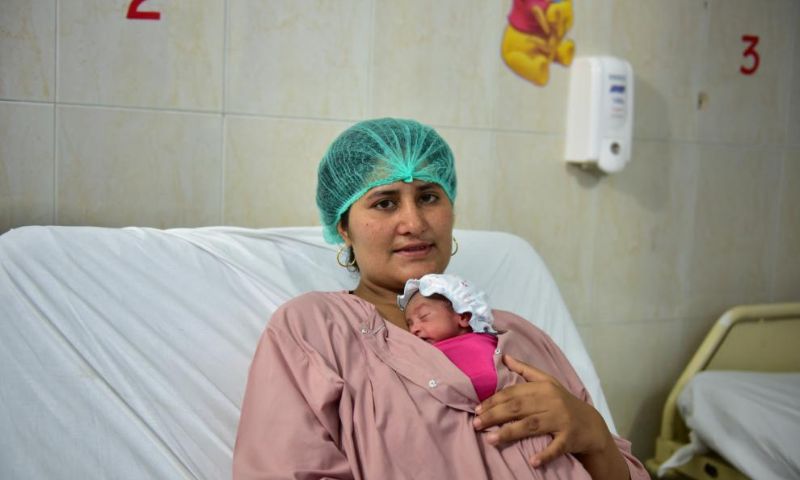ISLAMABAD: As the world observes World Prematurity Day, the spotlight turns to the critical importance of “kangaroo care” in ensuring the survival and well-being of preterm infants. Premature births, coupled with challenges such as malnutrition, pose significant health risks for both mothers and newborns, making initiatives like kangaroo care essential for their long-term health.
“Kangaroo care,” also known as “skin-to-skin care,” involves parents holding their newborns against their bare skin. This practice not only contributes to the physical and emotional growth of the child but also fosters a stronger bond between parent and infant. The benefits of kangaroo care extend to both the mother and the child, making it a vital component of neonatal care.
Maternity institutions, recognizing the value of skin-to-skin contact, often encourage this practice, especially for preterm infants receiving treatment in special care units or neonatal intensive care units. Even full-term newborns can benefit from kangaroo care, reinforcing its versatility and impact on the overall well-being of infants.
Health of Preterm Infants in Bangladesh
Recent statistics shared by the International Centre for Diarrheal Disease Research, Bangladesh (icddr,b) shed light on the global challenges surrounding premature and underweight births. Out of the 135 million babies born in 2020, a staggering 35.3 million were underweight or delivered prematurely. Complications arising from these issues contributed to a concerning 55.4% of the 2.24 million newborn deaths that year.
During a press conference, Samina Chowdhury, the former president of the Obstetrical and Gynaecological Society of Bangladesh (OGSB), emphasized the critical role of quality prenatal care in ensuring healthy pregnancies. Highlighting the need for expectant mothers to consult with healthcare professionals at least eight times, Chowdhury stressed the importance of monitoring key indicators such as the mother’s weight, blood pressure, blood and urine tests, and providing pregnancy counseling.
Bangladesh faces specific challenges, with UNICEF reporting 446,900 premature births annually, leading to 23,600 deaths before the age of five. Factors such as maternal malnourishment and early marriage contribute significantly to these early deliveries. Bangladesh’s high rate of child marriage, the highest in South Asia, underscores the link between maternal age, health, and the likelihood of premature and undernourished births.
Despite claims of progress in healthcare, Bangladesh ranks seventh among the world’s 10 least developed countries concerning premature births. The allocation of only 1% of the country’s GDP to healthcare, compared to 9% in Europe and 18% in the US, reveals the challenges the nation faces in safeguarding children’s health.























